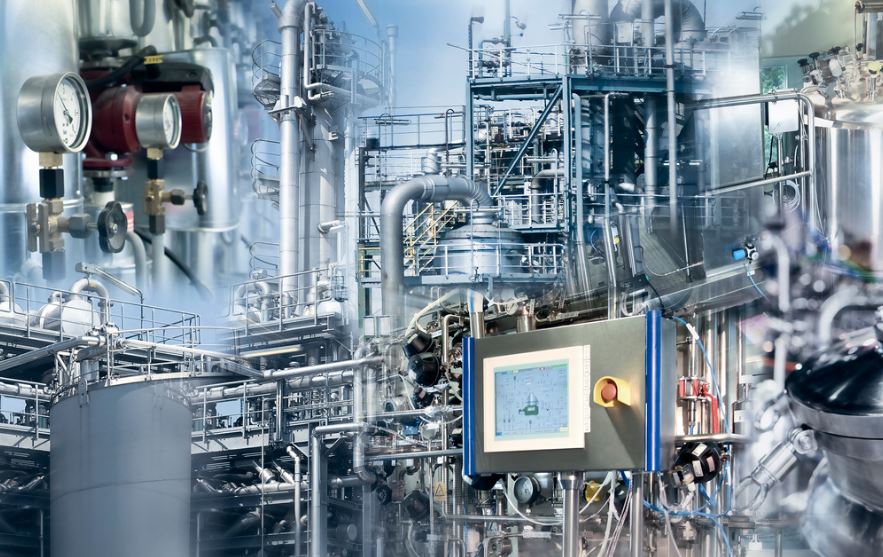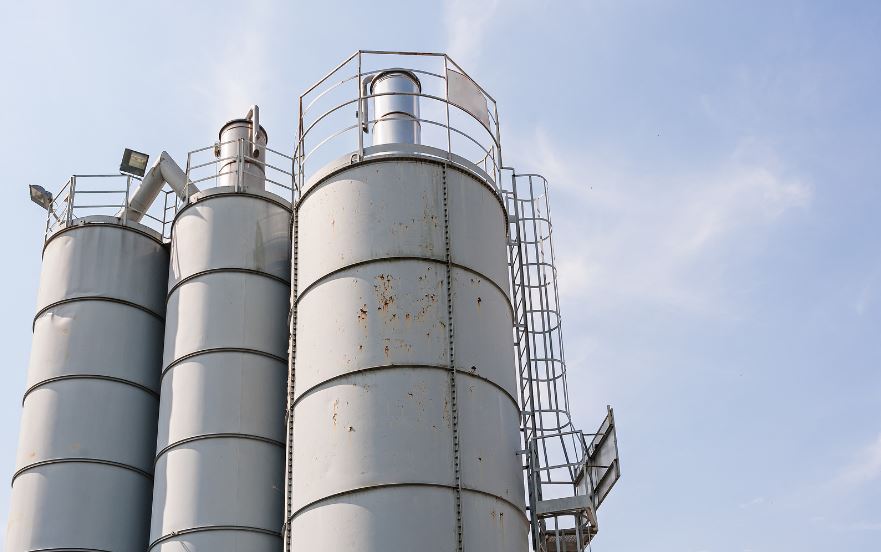In the world of chemical manufacturing, optimizing IT infrastructure is crucial for streamlining processes, improving efficiency, and staying competitive in a rapidly evolving industry. By leveraging the power of IT solutions, chemical manufacturers can revolutionize their operations and achieve significant benefits.

Importance of IT Infrastructure in Chemical Manufacturing
IT infrastructure plays a vital role in the success of chemical manufacturing operations. It provides the foundation for a range of interconnected systems and technologies that support various aspects of the manufacturing process. Here are some key reasons why IT infrastructure is essential in chemical manufacturing:
- Data Management: Chemical manufacturing involves handling large amounts of data related to product formulations, quality control, inventory management, and more. Robust IT infrastructure enables efficient data collection, storage, and analysis, facilitating informed decision-making and process optimization.
- Process Automation: IT infrastructure allows for the automation of manual and repetitive tasks, reducing human error and increasing productivity. Automation systems can control and monitor various processes, such as batch management, inventory tracking, and equipment performance, leading to improved efficiency and consistency.
- Collaboration and Communication: Effective communication and collaboration are essential in chemical manufacturing, especially in multi-site or global operations. IT infrastructure enables seamless communication and data sharing among teams, departments, and even external stakeholders, fostering collaboration and enhancing overall operational efficiency.
- Regulatory Compliance: The chemical manufacturing industry is subject to numerous regulations and compliance standards. IT infrastructure helps manage compliance by facilitating accurate record-keeping, traceability, and reporting. It enables manufacturers to meet regulatory requirements, avoid penalties, and maintain a strong reputation in the industry.
Benefits of Optimizing IT Solutions
Optimizing IT solutions in chemical manufacturing can yield a wide range of benefits, positively impacting both operations and business outcomes. Here are some key advantages of enhancing IT infrastructure in the chemical manufacturing industry:
- Streamlined processes and increased operational efficiency
- Improved product quality and consistency
- Enhanced inventory management and supply chain visibility
- Accurate forecasting and demand planning
- Real-time monitoring and control of production
- Reduced downtime and improved equipment maintenance
- Enhanced data security and protection
- Improved compliance with regulatory standards
- Increased agility and ability to adapt to market changes
- Enhanced decision-making through data-driven insights
Embracing and optimizing IT infrastructure solutions allows chemical manufacturers to unlock their full potential, drive innovation, and gain a competitive edge. Assessing the specific needs of manufacturing processes, mapping out the right IT solutions, and ensuring continuous improvement and scalability are essential to keeping up with evolving technologies and industry demands.
Assessing IT Infrastructure Needs
Before implementing IT infrastructure solutions for chemical manufacturing, it is essential to assess the specific needs and requirements of the industry. This assessment helps in determining the optimal IT solutions that can enhance efficiency, productivity, and overall operations. In this section, we will explore two critical aspects of assessing IT infrastructure needs for chemical manufacturing: understanding the requirements of chemical manufacturing and mapping out IT infrastructure solutions.
Understanding the Requirements of Chemical Manufacturing
Chemical manufacturing is a complex industry with unique operational demands. To effectively address these requirements, it is crucial to have a deep understanding of the specific challenges and goals of chemical manufacturing processes. Here are key considerations when assessing the needs of chemical manufacturing:
- Production Scale: Chemical manufacturing facilities can range from small-scale laboratories to large-scale production plants. The IT infrastructure must be capable of handling the scale of operations and accommodate future growth.
- Data Management: Chemical manufacturing involves vast amounts of data, including research data, formulation records, safety data sheets, and quality control data. A robust IT infrastructure should provide secure and efficient data management systems to handle storage, retrieval, and analysis of this critical information.
- Process Automation: Chemical manufacturing often involves intricate processes that can benefit from automation. IT infrastructure solutions should support process automation, such as process control systems and data acquisition systems, to streamline operations and improve accuracy.
- Collaboration and Communication: Effective collaboration and communication are essential for seamless operations in chemical manufacturing. IT solutions should enable real-time collaboration, document sharing, and communication tools to enhance teamwork and information exchange.
Mapping Out IT Infrastructure Solutions
Once the requirements of chemical manufacturing are understood, the next step is to map out the appropriate IT infrastructure solutions. This involves identifying the necessary hardware, software systems, and network infrastructure to support the specific needs of the industry. Here are the key components to consider:
Hardware Requirements
| Component | Description |
| Servers | Powerful servers to handle data storage, processing, and applications. |
| Workstations | Reliable and high-performance computers for employees to perform their tasks efficiently. |
| Storage Systems | Scalable storage solutions to accommodate the growing data needs of chemical manufacturing. |
| Backup Systems | Robust backup systems to ensure data protection and disaster recovery. |
| Networking Equipment | Routers, switches, and firewalls to establish secure and reliable network connectivity. |
Software Systems
| System | Description |
| Enterprise Resource Planning (ERP) | Integrated software to manage various aspects of chemical manufacturing, including inventory, production planning, and financials. |
| Laboratory Information Management System (LIMS) | Software for managing laboratory data, sample tracking, and quality control in chemical analysis. |
| Manufacturing Execution System (MES) | Software for real-time monitoring and control of manufacturing processes, ensuring consistency and quality. |
| Regulatory Compliance Software | Tools to facilitate compliance with industry regulations and standards. |
| Data Analytics and Reporting Tools | Software for data analysis, reporting, and visualization to support informed decision-making. |
Network Infrastructure
| Component | Description |
| Local Area Network (LAN) | Internal network infrastructure to connect computers, servers, and other devices within the facility. |
| Wide Area Network (WAN) | Network infrastructure to connect multiple sites or enable remote access for employees. |
| Internet Connection | Reliable and high-speed internet connectivity to support cloud-based applications and data exchange. |
| Network Security | Firewalls, intrusion detection systems, and encryption protocols to protect sensitive data and prevent unauthorized access. |
Understanding the requirements of chemical manufacturing and mapping out appropriate IT infrastructure solutions lays the foundation for efficient and secure operations. Consulting with IT experts and service providers is crucial to ensure that the solutions align with the specific needs of the business and comply with industry regulations.

Key Components of IT Infrastructure
To revolutionize chemical manufacturing processes, optimizing the IT infrastructure is essential. This section will explore the key components that make up a robust IT infrastructure for chemical manufacturing: hardware requirements, software systems, and network infrastructure.
Hardware Requirements
In chemical manufacturing, the right hardware is crucial for efficient and reliable operations. This includes servers, workstations, storage devices, and other equipment needed to support various tasks within the manufacturing process. Here are some essential hardware components commonly used in chemical manufacturing IT infrastructure:
| Hardware Component | Purpose |
| Servers | Store and process large amounts of data, host software applications |
| Workstations | Provide computing power for employees to perform their tasks |
| Storage Devices | Store and manage data securely |
| Networking Equipment | Facilitate communication and data transfer between devices |
It's important to select hardware with sufficient processing power, memory, and storage capacity to meet the demands of chemical manufacturing operations. Regular maintenance and upgrades should be performed to ensure the hardware remains efficient and reliable.
Software Systems
Software systems play a critical role in managing and streamlining chemical manufacturing processes. These systems help automate tasks, improve efficiency, and ensure accurate data management. Here are some common software systems used in chemical manufacturing IT infrastructure:
| Software System | Purpose |
| Enterprise Resource Planning (ERP) | Integrated system to manage various aspects of the manufacturing process, including inventory, production, and finance |
| Manufacturing Execution System (MES) | Controls and monitors the execution of production processes on the shop floor |
| Laboratory Information Management System (LIMS) | Manages laboratory data, test results, and quality control processes |
| Supply Chain Management (SCM) | Optimizes the flow of materials, information, and finances across the supply chain |
Implementing the right software systems can streamline operations, improve productivity, and enhance decision-making capabilities. It's important to choose software solutions that align with the specific needs and requirements of the chemical manufacturing industry.
Network Infrastructure
A robust and reliable network infrastructure is essential for seamless communication and data transfer within chemical manufacturing facilities. This includes both local area networks (LANs) and wide area networks (WANs) that connect various devices and locations. Here are some key components of a chemical manufacturing network infrastructure:
| Network Component | Purpose |
| Routers | Direct network traffic and facilitate communication between devices |
| Switches | Connect devices within a local network and facilitate data transfer |
| Firewalls | Protect the network from unauthorized access and cyber threats |
| VPN (Virtual Private Network) | Securely connect remote locations and enable secure access to the network |
A well-designed and properly configured network infrastructure ensures efficient and secure data transfer, facilitates collaboration, and supports the integration of various systems within the chemical manufacturing process.
Addressing hardware requirements, implementing suitable software systems, and establishing a reliable network infrastructure enables chemical manufacturing companies to optimize their IT setup. This enhances productivity, streamlines operations, and drives innovation. Regular evaluation and upgrades are essential to keep up with technological advancements and industry requirements.

Implementing IT Solutions
Once you have assessed your IT infrastructure needs and mapped out the optimal solutions for your chemical manufacturing processes, it's time to move forward with implementing the chosen IT solutions. This section covers the key steps involved in the implementation process: installation and configuration, testing and integration, and training and support.
Installation and Configuration
The first step in implementing IT solutions for your chemical manufacturing is the installation and configuration of the necessary hardware and software components. This involves setting up the required servers, workstations, and networking equipment. Additionally, it includes the installation and configuration of software systems specific to your manufacturing processes, such as Enterprise Resource Planning (ERP) software or Manufacturing Execution Systems (MES).
During the installation and configuration phase, it is essential to follow best practices and ensure compatibility between different hardware and software components. Adequate planning and coordination with IT professionals or vendors can help streamline the installation process and minimize disruptions to your manufacturing operations.
Testing and Integration
After the installation and configuration phase, thorough testing and integration of the IT solutions are crucial to ensure their proper functioning within your chemical manufacturing environment. Testing involves verifying that the hardware, software, and network infrastructure are working as intended and are compatible with your manufacturing processes. This includes conducting performance tests, stress tests, and system integration tests to identify and resolve any issues or bottlenecks.
Integration of the IT solutions with your existing systems and workflows is also an important step. This may involve data migration, establishing communication protocols between different software systems, and ensuring seamless data exchange between various departments within your organization. It is essential to conduct comprehensive testing and integration activities to ensure the smooth operation of your IT infrastructure.
Training and Support
To fully leverage the benefits of your implemented IT solutions, training and support play a vital role. Training sessions should be provided to employees who will be using the new systems or working with the updated processes. This training should cover the proper use of the software systems, data entry procedures, and any specific workflows related to the IT infrastructure.
In addition to initial training, ongoing user support is crucial for the successful implementation of IT solutions. This can include a dedicated IT support team or vendor who can address any technical issues, provide guidance, and offer assistance to users as they adapt to the new systems. Regular software updates, maintenance, and troubleshooting should also be part of the support framework to ensure the continued efficiency and effectiveness of your IT infrastructure.
Following a systematic approach to implementing IT solutions—covering installation and configuration, testing and integration, and training and support—can optimize chemical manufacturing processes. This approach streamlines operations, boosts productivity, and enhances overall efficiency in manufacturing operation.

Ensuring Security and Compliance
In the chemical manufacturing industry, ensuring security and compliance is of utmost importance. The sensitive nature of data and the need to adhere to regulatory requirements necessitate robust measures for data protection, regulatory compliance, and disaster recovery planning.
Data Protection Measures
Protecting sensitive data is crucial in the chemical manufacturing sector. Implementing data protection measures helps safeguard valuable information from unauthorized access, loss, or theft. Some common data protection measures include:
- Encryption: Encrypting data ensures that even if it is intercepted, it remains unreadable without the correct decryption key.
- Access Control: Implementing access controls ensures that only authorized personnel have access to sensitive data, limiting the risk of data breaches.
- Regular Backups: Regularly backing up data helps prevent data loss in the event of hardware failures, cyber-attacks, or natural disasters.
- Intrusion Detection and Prevention Systems: These systems monitor network traffic and identify potential threats, helping to prevent unauthorized access to data.
Implementing data protection measures helps chemical manufacturing companies enhance IT infrastructure security and mitigate the risk of data breaches.
Regulatory Compliance
Compliance with regulatory standards is essential for chemical manufacturing companies. Adhering to industry-specific regulations ensures the safety of operations, protects the environment, and maintains the integrity of products. Some key regulatory compliance considerations include:
- Hazardous Material Handling: Compliance with regulations pertaining to the safe handling, storage, and disposal of hazardous materials is crucial to minimize risks and prevent environmental harm.
- Occupational Safety: Ensuring compliance with regulations related to worker safety and health protects employees from workplace hazards and promotes a safe working environment.
- Quality Standards: Adhering to quality standards, such as ISO certifications, helps maintain product integrity and customer satisfaction.
Chemical manufacturing companies must stay up-to-date with relevant regulations, implement necessary controls, and regularly review their processes to ensure ongoing compliance.
Disaster Recovery Planning
Disaster recovery planning is vital to mitigate the impact of unexpected events that can disrupt operations. Chemical manufacturing companies must have robust strategies in place to recover critical systems and data in the event of natural disasters, cyber-attacks, or hardware failures. Key elements of a disaster recovery plan include:
- Backup and Recovery Procedures: Regularly backing up critical data and establishing recovery procedures ensures that data can be restored in a timely manner.
- Redundancy and Failover Systems: Implementing redundant systems and failover mechanisms minimizes downtime and ensures continuity of operations.
- Testing and Regular Updates: Regularly testing the disaster recovery plan and updating it as needed helps identify any gaps or weaknesses and ensures its effectiveness.
Proactively planning for potential disasters allows chemical manufacturing companies to minimize downtime, protect data, and quickly resume operations, reducing impacts on productivity and profitability.

Continuous Improvement and Scalability
Once your IT infrastructure solutions for chemical manufacturing are implemented, it's important to prioritize continuous improvement and scalability. By focusing on monitoring and maintenance, upgrades and expansion, and future-proofing your IT infrastructure, you can ensure its effectiveness and adaptability over time.
Monitoring and Maintenance
Regular monitoring and maintenance of your IT infrastructure is crucial to identify and address any potential issues or performance gaps. This can involve proactive monitoring of hardware, software systems, and network infrastructure to detect anomalies or vulnerabilities before they escalate into larger problems.
In addition to monitoring, routine maintenance tasks such as software updates, hardware maintenance, and system optimizations should be performed. This helps to keep your IT infrastructure running smoothly and efficiently, minimizing downtime and maximizing productivity.
Upgrades and Expansion
As your chemical manufacturing operations grow and evolve, it's important to consider upgrades and expansion of your IT infrastructure. This may involve adding more powerful hardware components, increasing storage capacity, or upgrading software systems to accommodate higher demands.
Before making any upgrades or expansions, it's essential to assess your current and future needs. This can be done by evaluating performance metrics, considering industry trends, and consulting with IT professionals. By carefully planning and implementing upgrades and expansions, you can ensure that your IT infrastructure remains aligned with your business goals.
Future-Proofing Your IT Infrastructure
In a rapidly changing technological landscape, future-proofing your IT infrastructure is vital to stay ahead of the curve. This involves anticipating future needs and trends, and ensuring that your IT solutions are adaptable and scalable.
To future-proof your IT infrastructure, consider the following strategies:
- Embrace cloud-based solutions: Cloud computing offers scalability, flexibility, and accessibility, allowing you to easily expand your IT infrastructure as needed.
- Implement modular systems: Opting for modular software and hardware solutions enables easier upgrades and replacements, minimizing disruption to your operations.
- Stay updated with industry standards and technologies: Continuously monitor advancements in IT services and consider incorporating relevant technologies to enhance your chemical manufacturing processes.
Continuously improving and scaling your IT infrastructure optimizes the performance and efficiency of chemical manufacturing operations. Regular monitoring and maintenance, strategic upgrades and expansions, and future-proofing measures ensure that your IT solutions adapt to the evolving needs of your business.
Enhance Your IT Infrastructure with LK Tech
Optimize your chemical manufacturing operations with our expert IT Infrastructure Support in Cincinnati. Our tailored solutions ensure peak performance, efficiency, and security for your IT systems.
Contact us today to discover how our comprehensive support and innovative technologies can elevate your operations and keep your business ahead in a competitive industry.


